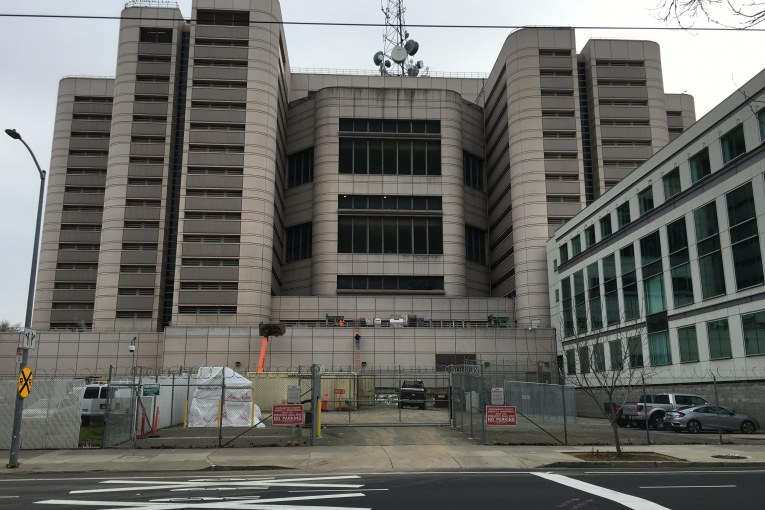
Guest Opinion: Firearms and Mental Illness: A Physician’s Perspective – Boulder Daily Camera

By Daniel A. Kinderlehrer, M.D.
No words can describe the awfulness of what happened in Boulder. But at least it was awful enough to re-stir the debate on gun control.
The Republicans are still tied to the far right that turns out at their primaries, despite the fact that the NRA is itself declaring bankruptcy and is no longer able to fill their campaign coffers.
Since they can’t say they condone gun violence, they have to come up with some excuse not to mandate background checks or outlaw AR15’s.
Here it is: First and foremost, we need to keep guns out of the hands of folks with mental illness.
We can all agree that guns and serious mental illness are a bad mix. But when is a mental illness serious? How do we predict when someone will become violent? Once identified, how do we ensure that these people get appropriate mental health treatment? What is the appropriate treatment?
These are all good questions.
And they are all nearly impossible to answer.
The questions we should be asking are why is there so much mental illness, and what can we do to prevent it?
According to the National Institute of Mental Health, 25% of adults in the U.S. suffer from mental illness. Anxiety and depression top the list, but we are also witnessing increasing numbers of people suffering from bipolar disorder, schizophrenia, eating disorders, and personality disorders.
But it’s not only adults. According to a National Survey of Children’s Health in 2016, one in six children between the ages of six and seventeen have a treatable mental health disorder.
These statistics are nothing short of alarming. Anxiety disorders occur in approximately 32% of adolescents 13 to 18 years of age. Twenty-one percent of adolescents experienced major depression in 2015. Since 2014, suicide has replaced homicide as the second most common cause of death in teenagers ages 10 to 19 in the United States.
It wasn’t always this way. People born after 1966 are twenty-two times more likely to suffer from anxiety than people born before 1937. People born after 1945 are ten times as likely to suffer from depression than those born before. High school and college students today are five to eight times more likely to meet the criteria for diagnosis of depression and/or anxiety than they were half a century ago.
What has so dramatically altered the prevalence of mental illness?
First, we need to realize that mental and physical well-being are intimately connected.
Long-term studies on adults who suffered from childhood abuse reveal not only a higher incidence of mental illness and suicide, but also a significantly higher risk of cardiovascular disease, cancer, immune disorders, and lung disease.
Conversely, numerous physical ailments such as thyroid disease, gluten intolerance, hypoglycemia, fibromyalgia, and Lyme disease can result in psychiatric symptoms. Microbial infections such as strep throats can trigger severe mental and behavioral disorders in children and adolescents.
Scientific studies have also clearly linked depression, attention deficit disorder, and schizophrenia to junk food and the absence of essential fats, vitamins, and minerals in the diets of industrialized nations.
There is a long list of toxic chemicals that can cause depression: pesticides, solvents, including those found in detergents, dry cleaning fluids, and perfumes; polystyrene cups, plates, and packaging; and prescription drugs such as beta-blockers, corticosteroids, pain medications, and tranquilizers—not to mention opiates. In addition, high lead levels are linked with violent behavior.
Let’s face it. We live in a toxic chemical soup that is messing with our minds and other vital organs.
We are not only increasingly overfed (yet malnourished), sedentary, sunlight-deficient, poisoned, and sleep-deprived, but also socially isolated.
Researchers have confirmed a sharp decline in social connectedness in the past 20 years, and social isolation is a huge risk factor for major depression. Pre-industrialized cultures experience virtually no depression.
We can and should work hard to circumvent the Republicans’ intransigence to passing common-sense gun control laws. We must try harder to deny people with mental illness the firearms that they mostly use against themselves. But let’s evaluate our priorities, consider our collective responsibilities, and work on the root causes of mental illness in our nation.

 Ned Meiners is a Legal Studies student at City College San Francisco. Originally from Maine, he currently resides on Bernal Hill in San Francisco.
Ned Meiners is a Legal Studies student at City College San Francisco. Originally from Maine, he currently resides on Bernal Hill in San Francisco.



